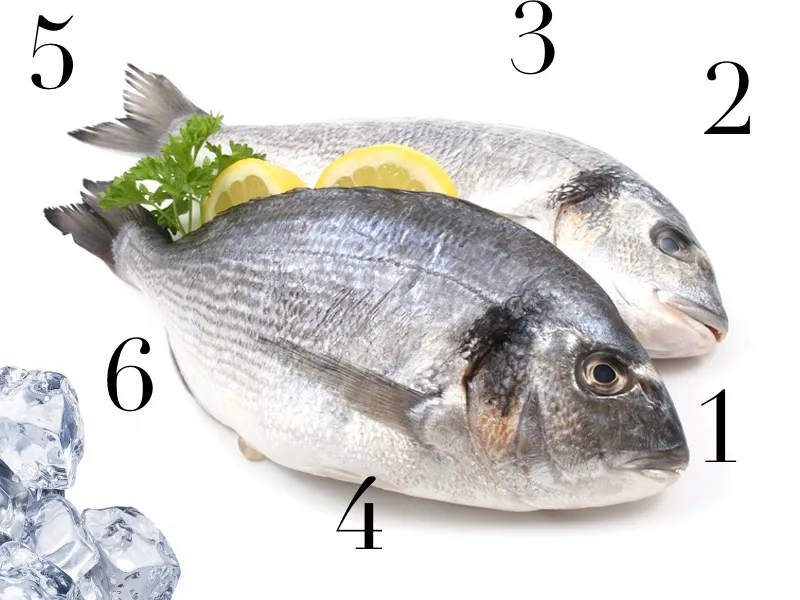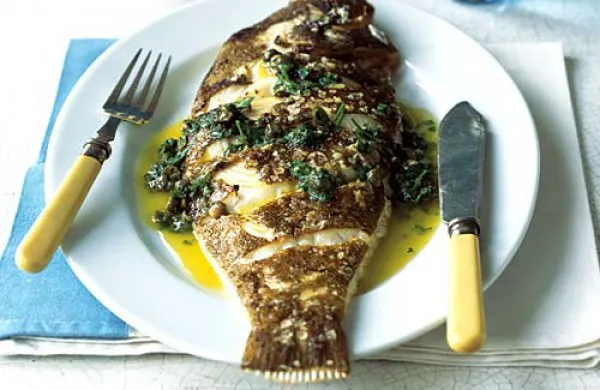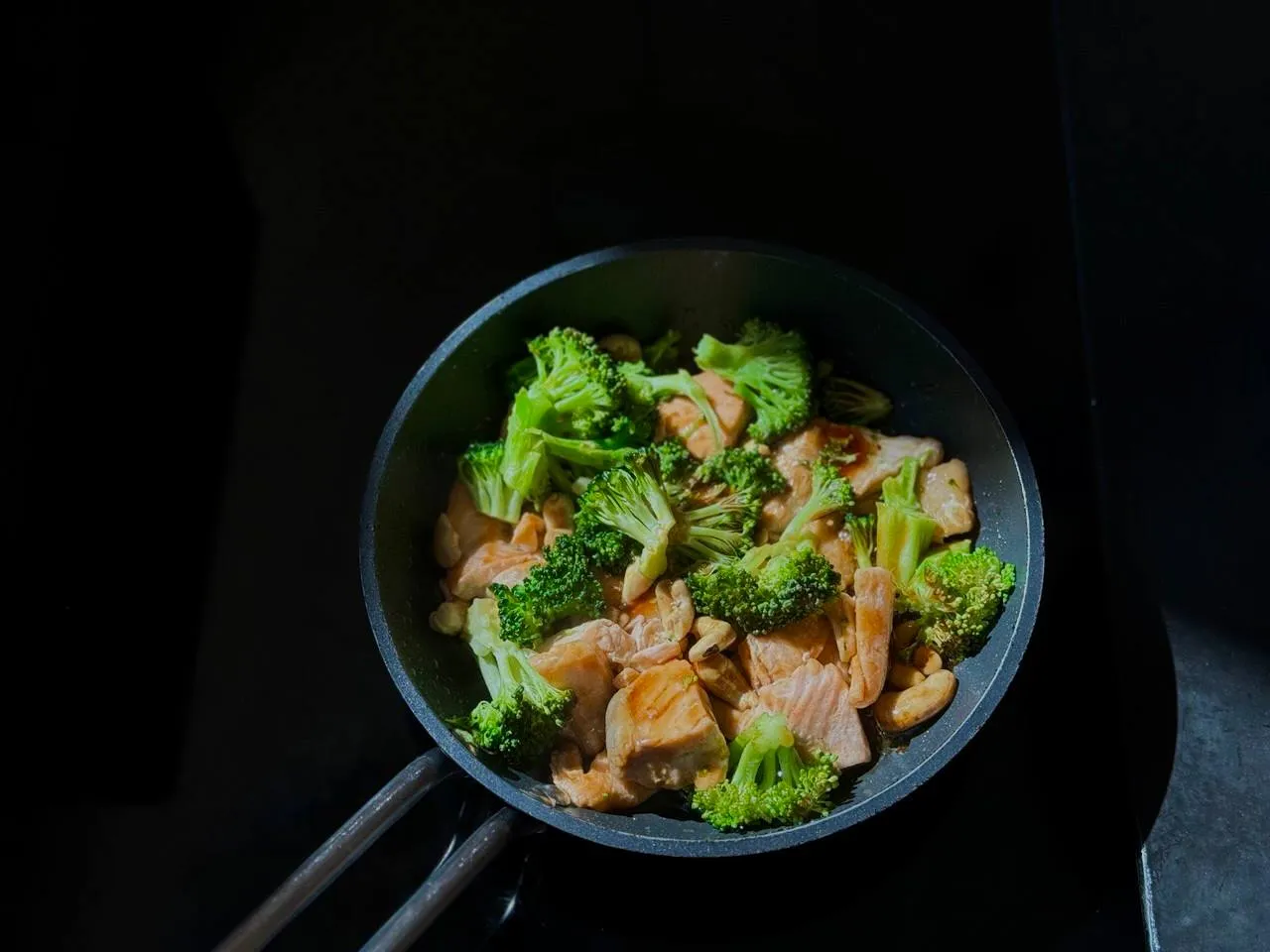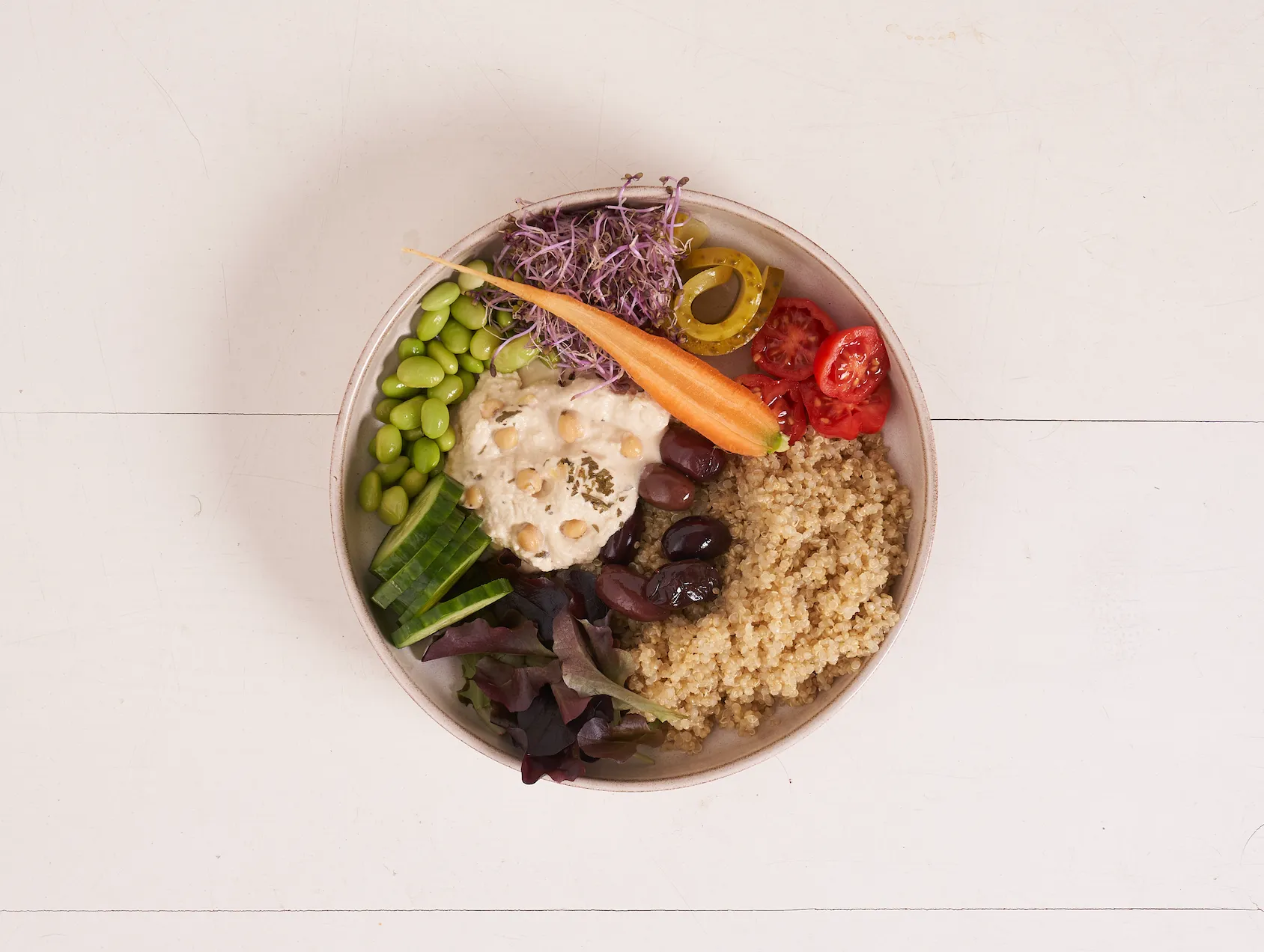
Simple recommendations for determining fish freshness at the counter, and a few delicious recipes anyone can prepare.
How to choose fresh fish
Spoiled fish is easy to spot — it appears dull, and the smell resembles stagnant water rather than fresh seawater or a clean pond. But how do you pick the freshest fish among those that seem decent at first glance? Whether it's marine or freshwater fish, there are a few universal indicators of absolute freshness. Pay close attention to these features.

- Eyes: Fresh fish has bright, clear, and shiny eyes — either black or transparent — but not cloudy.
- Flesh: The body of fresh fish is firm and resilient. If pressing a finger leaves a dent, the fish is no longer fresh.
- Scales: The scales should be tightly attached to the skin, smooth, and glossy.
- Gills: Fresh fish has gills that are red or pink.
- Tail: The tail should be firm and moist; a dry or curled tail suggests the fish is not fresh.
- Timing: Purchase fish on the day of preparation or the day before.
- Storage: Fish that is swimming in water or stored on ice is always fresher and tastier than frozen fish.
To prove that cooking fish is simple and the results can exceed expectations, here are three easy recipes requiring no more than 10 minutes of preparation time.
Tuna steak
Ingredients (per serving):
- 1 tuna steak
- 3 tbsp. soy sauce
- 1 tsp. grated ginger root
- 4 garlic cloves, crushed
- juice of 1/2 lemon
- olive oil
In a small bowl, combine all the marinade ingredients and let the tuna steak sit in the mixture for 15-20 minutes. Heat a pan thoroughly and sear the steak for 3 minutes on each side (or slightly longer if you prefer it well done).

Dorado with rosemary
Ingredients (per serving):
- 1 whole dorado
- 3 sprigs of rosemary
- 1 lemon
- salt
- pepper
- olive oil
Clean and rinse the fish, then pat it dry. Season the inside with salt and pepper, add a few sprigs of rosemary and a slice of lemon. Coat the fish with olive oil and sprinkle with salt. Roast in a preheated oven at 180°C for about 20 minutes. To check doneness, insert a knife into the thickest part of the fish — the flesh should separate easily from the bone and appear white.

Mackerel pâté
Ingredients (for 500 g pâté):
- 500 g mackerel fillet (or any other fatty fish)
- salt and pepper
- 1 sweet onion
- 50 g butter
- 100 ml white wine
- 200 ml sour cream or heavy cream
- a pinch of thyme leaves
- 1/2 tsp. ground dried garlic
- 1 tsp. grain mustard
- juice of 1/2 lemon
- fresh herbs to taste
Season the fish fillet with salt and pepper. In a pan, sauté the chopped onion in half the butter, then add the fish, sour cream (or heavy cream), thyme, and garlic. Stir and cook over medium heat until the liquid evaporates and the mixture turns into a puree. Add the remaining butter, lemon juice, and chopped fresh herbs. Blend the mixture with a hand blender until smooth. Let it cool, then stir in the mustard. Serve with toast.

Additional Tips for Enhancing Fish
Spices, Sauces, and Marinades: Seasoning fish is largely a matter of personal taste, but there are some tried-and-true combinations. Mix herbs and oils, salts, and dry spices, and serve the prepared fish with classic, time-tested sauces.
Olive Oil
Pairs perfectly with any type of fish. Rinse and dry the whole fish or fillet, then coat it inside and out with olive oil. This keeps the flesh juicy and gives it a golden crust.
Lemon
Lemon juice balances flavors and cuts through the excess richness of fish. Don’t forget about citrus zest — stuffing any sea fish with lemon slices will impart a delicate, slightly tangy aroma to the meat.
Herbs
Thyme, rosemary, green garlic, oregano, marjoram, tarragon, mint, parsley, and dill — all aromatic herbs complement fish beautifully. Add them to sauces and dressings, mix them with oil to stuff fish, or use them in fish fillings and pâtés.
Salt
Better yet, use flavored salt, which pairs well with fish fillets and elevates even the simplest preparations into a gourmet dish. Here are a few options.
- Coarse sea salt + a sprig of rosemary + zest of 1/2 orange (mix in a mortar).
- Zest of 1 lemon + black peppercorns + coarse sea salt (grind in a mortar or blender).
- Sea salt + a pinch of lavender flowers (mix and let it infuse for at least 7 days).
Nutritional Benefits of Fish
Fish is prized for its dietary qualities, rich vitamin content, and easily digestible protein. However, the most valuable component is Omega-3 fatty acids. These fats are quickly absorbed by the stomach, enter the bloodstream, and enhance cellular structure and activity.
Benefits of Omega-3.
- Improves heart, brain, eye, and joint health.
- Reduces cholesterol levels.
- Acts as a powerful antioxidant, removing free radicals and slowing the aging process.
Omega-3 fatty acids also have strong anti-inflammatory properties. Fish oil is recommended for eczema, allergies, asthma, Alzheimer's disease, neurological disorders, diabetes, psoriasis, and other skin conditions.
Fish High in Omega-3
- Salmon family (salmon, trout) — baking, grilling, pan-frying, poaching.
- Carp and catfish — baking, pan-frying.
- Sea bass, dorado, and other firm white-fleshed fish — baking, grilling, pan-frying, poaching.
- Eel — baking, grilling, oven-roasting.
- Tuna — grilling, pan-frying, baking.
- Pike — baking, grilling, pan-frying, poaching.
- Mackerel, herring, and sardines — cured fillets, pan-frying.

%20(1).jpg)
.jpg)
.jpg)






